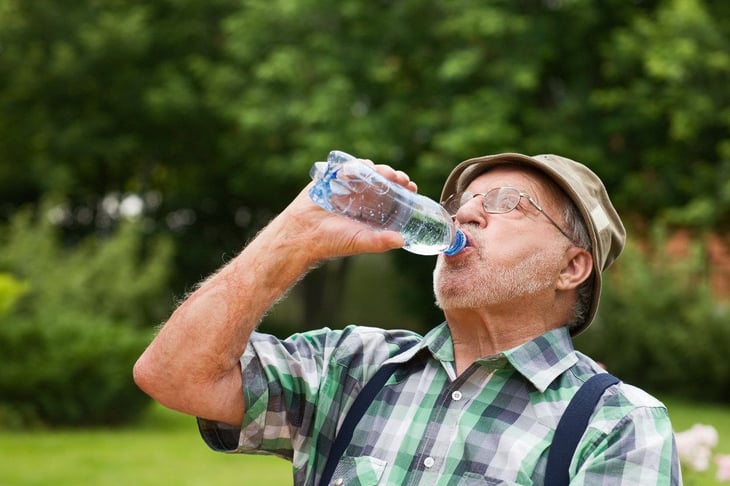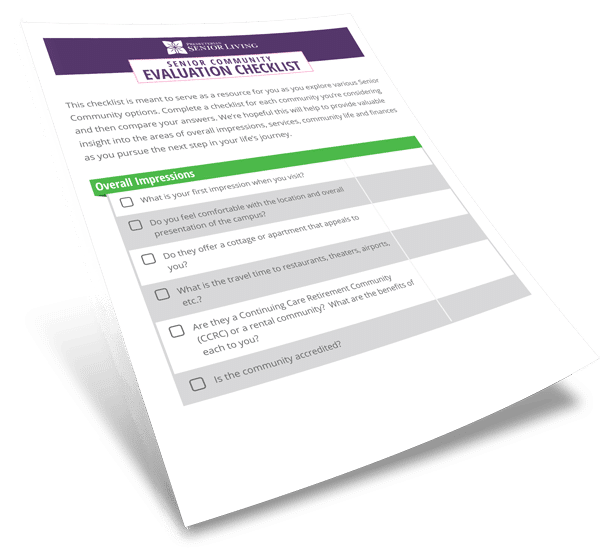As summer is in full swing and the outside temperature heats up, it's a perfect time to start talking about preventing dehydration throughout the summer months. Older adults face an increased risk of dehydration due to reduced ability to conserve water, a decrease in thirst, and a decreased daily fluid intake. Chronic illnesses and medication use increase risk as well, so seniors suffering from diabetes or dementia or taking certain medications may be at higher risk of dehydration.
Prevention is Key to Dehydration in Seniors

The best step you can take to promote health and wellness is to work with your loved one to prevent dehydration before it strikes. Some simple steps you can to prevent dehydration include:
- Monitor fluid intake with a goal of 1.7 liters per day.
- Encourage small drinks throughout the day rather than large volumes of water at once.
- Keep drinks easily accessible and use adaptable equipment if necessary to allow for more independence in drinking.
- Incorporate fresh fruits and vegetables into meals as these contain water as well.
- Notify your loved one's primary care provider of vomiting or diarrhea early so treatment can be prescribed before too much fluid is lost.
Please note these are just guidelines based on nationwide averages, the amount of fluid intake varies per individual - consult your doctor to discuss your needs in detail.
Early Intervention

In some cases, dehydration may occur despite your best efforts. Maintaining awareness of the signs and symptoms of dehydration can assist in early recognition and treatment. Notify your senior loved one's healthcare provider if you notice these symptoms:
- The mouth is dry and/or sticky.
- Urine output is decreased; senior has not voided as often or as much as usual.
- Skin is dry.
- Senior is constipated or struggling to have a bowel movement; bowel movements are hard and dry.
- Eyes are sunken.
- Skin doesn't bounce back after being pinched gently.
- Blood pressure is low or patient is experiencing dizziness or lightheadedness.
- Breathing or heart rate are elevated.
- Fever is present.
- Muscle cramps or spasms.
All of these symptoms do not need to be present in order to signal dehydration; if you notice any new symptoms notify the nurse or provider working with your parent or loved one.
Fun Summer Activities that Won't Dehydrate
An increased risk of dehydration shouldn't prevent you from having fun and taking your parent, grandparent, or other older adult friend out during summer months. There are a number of activities you can do without increasing the risk of dehydration:
- Gardening in a raised garden; spend short periods of time working in the garden and return inside to cool down and rehydrate before returning to the garden. Placing the raised bed in the shade and keeping fluids nearby can assist, too.
- Canning and baking; use fresh garden fruits, vegetables, and herbs for canning and baking. Cool the kitchen with air conditioning or a fan and drink plenty of water.
- Have a picnic; a picnic is a great opportunity to enjoy the outdoors, and evening picnics take advantage of the cooler temperatures and setting sun.
- Sit by the lake or pool; dip your feet into the cool water to stay cool and enjoy the view and outdoor sounds. Ensure shade and fluids are available to prevent sunburn or dehydration.
The summer months can be both fun and healthy when you take a few special measures to prevent and identify dehydration among the senior population. Download our summer survival checklist today to make sure you beat the heat!
